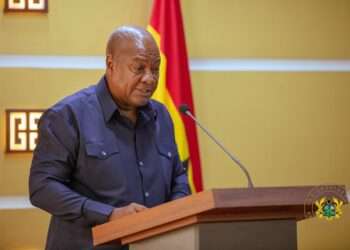The former majority leader, member of Parliament’s Legal Affairs Committee, and MP for Zebilla Hon. Cletus Avoka has urged Parliament to comply with the ruling of the Supreme Court.
As a senior legislator, although disagreed with the ruling of the Supreme Court, he emphasized the importance of cooperation among the three branches of government to avoid conflict.
Meanwhile, Hon. Avoka maintained that Parliament must respect it and act accordingly, should the Speaker officially inform the House.
“Whether the Supreme Court decision is right or wrong, we have agreed and adopted [the] constitution [which has] given them that power of supervisory role over all the organs. In terms of the interpretation of the Constitution. So, we respect it even though we disagree with the ruling.”
Hon. Cletus Avoka MP, Zebilla
Hon. Avoka’s remarks highlight a careful balance between his conviction and respect for constitutional hierarchy.
This recognition reflects a commitment to the democratic process, underscoring Parliament’s responsibility to uphold judicial decisions despite potential ideological differences.
The Question of Majority Occupancy
When asked if the NDC MPs would sit on the majority side of Parliament if reconvened, Hon. Avoka refrained from speculating.
“Let us convene. And then let the Speaker make the announcement, and then we will fall in line. Is not for me to sit here far away and say when we convene, this is going to happen and what not, I want to avoid speculation.”
Hon. Cletus Avoka MP, Zebilla
His response underscores the importance of the institutional process and the Speaker’s role in Parliament. Hon. Avoka hinted that NDC MPs would not act preemptively and would have to wait for the Speaker’s directive before making any seating arrangements in the House.
Calls for Unity in the Face of Division

Beyond the specific ruling, Hon. Avoka emphasized the need for collaboration within Parliament, particularly between the majority and minority parties.
He noted that the current state of division was a “disturbance” and called for unity in Parliament to serve the broader interests of Ghana.
“The people of Ghana had decided that in 2020, that’s why they gave us the hung parliament. So, we should normally discuss [issues] and agree by consensus, and implement that. And I think that we should respect the [people’s] will.”
Hon. Cletus Avoka MP, Zebilla
Hon. Avoka’s call for cooperation reflects his belief that Parliament has a responsibility to honor the mandate given by the electorate by prioritizing consensus-building and national interest over partisanship.
His statements captured his concerns regarding the Supreme Court’s decision and its implications for parliamentary integrity.
Albeit, the ruling of the Supreme declared that the Speaker of Parliament’s declaration of the status of the four MPs was “unconstitutional“, Hon. Avoka charged;
“I find that very absurd. It is against the background that, for some time now we have been concentrating on the faring legal technicalities on this subject. We have not been addressing the substance of the matter. We have not been addressing the mischief for the provision of article 97(g&h). There were reasons, good reasons why that article was provided in the constitution.”
Hon. Cletus Avoka MP, Zebilla
According to Hon. Avoka, the Court’s interpretation undermines fundamental constitutional principles, specifically Articles 1, 25, and 36, which affirm the sovereignty and will of the people.
He believes that such provisions were included to uphold the integrity of Parliament and prevent MPs from “denying the sovereign people of their decision” by switching allegiances mid-term.
Concerns Over Constitutional Clarity and Integrity
“It is very clear, very simple English that if you are in Parliament on a party ticket and you decide to file a nomination for another party or as an independent, you automatically forfeit your status.”
Hon. Cletus Avoka MP, Zebilla
The former majority leader stressed that no interpretation from the Supreme Court should override what he sees as a straightforward constitutional provision.
He described the ruling as unnecessary and even destabilizing since it interfered with the existing rules intended to maintain the integrity and loyalty of MPs to their constituents.
His remarks illustrate the tension between legal interpretation and legislative autonomy, as well as the challenges of navigating a politically divided Parliament.
Ultimately, Hon. Avoka’s call for unity reflects a broader appeal for cooperation in pursuit of the common interest of Ghanaians.





















